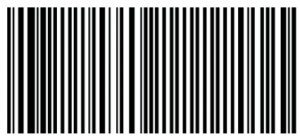The history of accounting or accountancy is thousands of years old and  can be traced to ancient civilizations.
can be traced to ancient civilizations.
The early development of accounting dates back to ancient Mesopotamia, and is closely related to developments in writing, counting and money and early auditing systems by the ancient Egyptians and Babylonians. By the time of the Roman Empire, the government had access to detailed financial information.
In India Chanakya wrote a manuscript similar to a financial management book, during the period of the Mauryan Empire. His book “Arthashasthra” contains few detailed aspects of maintaining books of accounts for a Sovereign State.
The Italian Luca Pacioli, recognized as The Father of accounting and bookkeeping was the first person to publish a work on double-entry bookkeeping, and introduced the field in Italy.
1494
Luca Pacioli, the father of accounting, writes his famous paper “Everything about Arithmetic, Geometry, and Proportion.” The treatise that he writes is mainly a study that Pacioli performs on the common practices of merchants in Venice, Florence, and Milan. He revealed that several merchants kept books of debits which means “he owes” as well as credits which means “he trusts.” With this early double entry accounting system merchants were able to maintain records so that they could improve the efficiency of their businesses. With these records came the primitive income and balance sheet statements.
Hints:
- Key lock – paint is only for ease of matching locks to keys, nothing to do with the game
- Directions lock – you must push the top down (that is the silver part) twice to reset the combination. (ie. every time you mess up you have to push it down twice)
- Alpha lock – sometimes not all the letters were available to do the clock combo, there might be a “x2” on one of the keys. It means that the letter/number that is there is needed 2 times and you will only be able to do it once.
- 4 digit lock – How good are you at your history?
- Not sure where to go from here, maybe time to find the bar code

Don’t forget you have one clue card; your whole team must be present to redeem this card with your instructor. Card must be surrendered at the time of use.
This line is info below is not relevant to the game, but this info copied from Wikipedia and The Strategic CFO, Timeline of Accounting
Frank William Abagnale Jr. (/ˈæbəɡneɪl/; born April 27, 1948) is an American security consultant known for his background as a former con man, check forger, and impostor while he was between the ages of 15 and 21. He became one of the most notorious impostors, claiming to have assumed no fewer than eight identities, including an airline pilot, a physician, a U.S. Bureau of Prisons agent, and a lawyer. Abagnale escaped from police custody twice (once from a taxiing airliner and once from a U.S. federal penitentiary) before turning 22 years old.He served less than five years in prison before starting to work for the federal government. Abagnale is currently a consultant and lecturer for the FBI academy and field offices. He also runs Abagnale & Associates, a financial fraud consultancy company. He soon retired and settled in L.A
Abagnale’s story inspired the Academy Award-nominated feature film, Catch Me If You Can (2002), starring Leonardo DiCaprio as Abagnale and Tom Hanks as the FBI agent pursuing him, as well as a Broadway musical of that name, both of which are based on the book Catch Me If You Can.